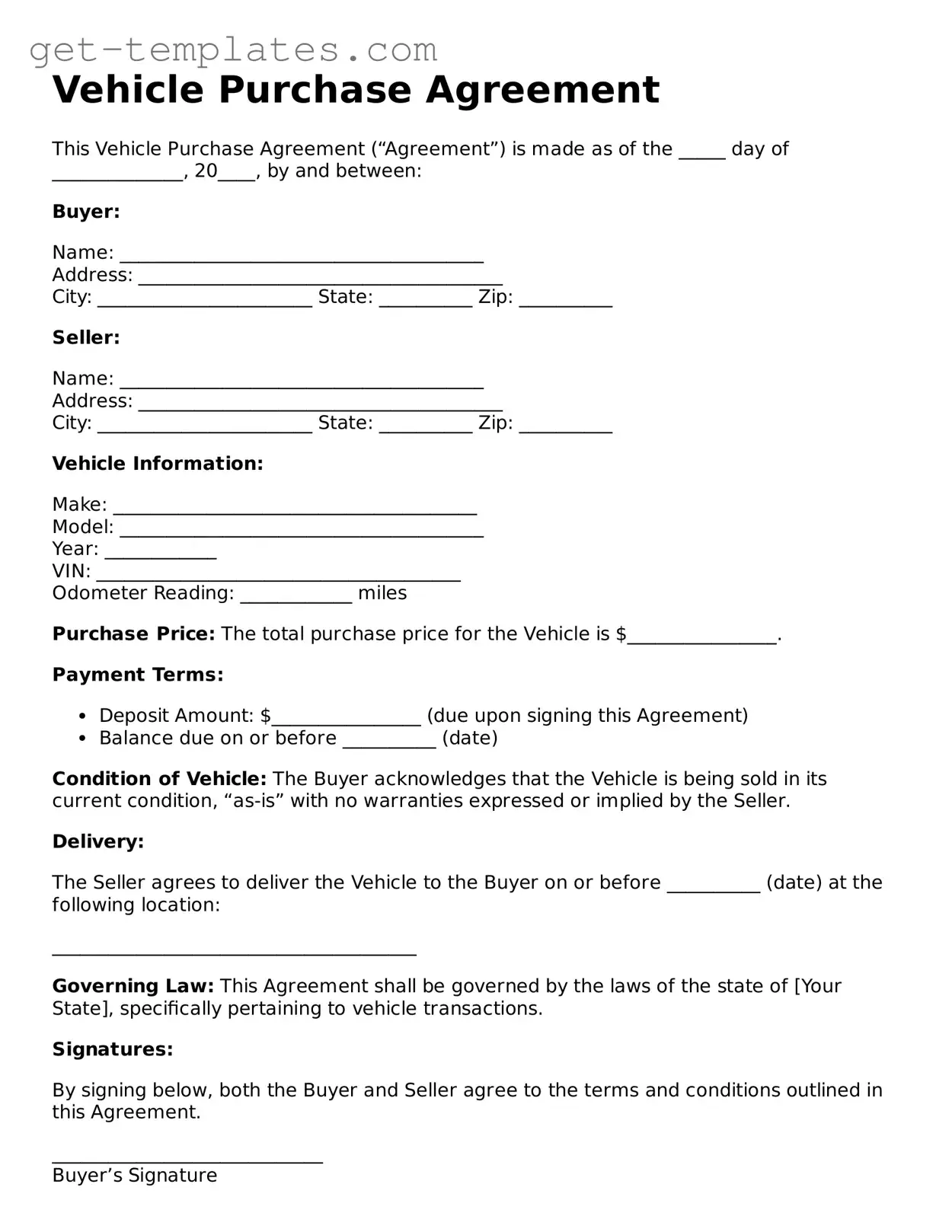Attorney-Approved Vehicle Purchase Agreement Form
A Vehicle Purchase Agreement is a legal document that outlines the terms and conditions of a sale between a buyer and a seller for a vehicle. This agreement protects both parties by clearly defining the responsibilities and expectations involved in the transaction. Understanding this form is essential for a smooth and transparent vehicle purchase process.
Get Document Online

Attorney-Approved Vehicle Purchase Agreement Form
Get Document Online
You’re halfway through — finish the form
Finish Vehicle Purchase Agreement online — edit, save, download made easy.
Get Document Online
or
⇓ PDF Form
